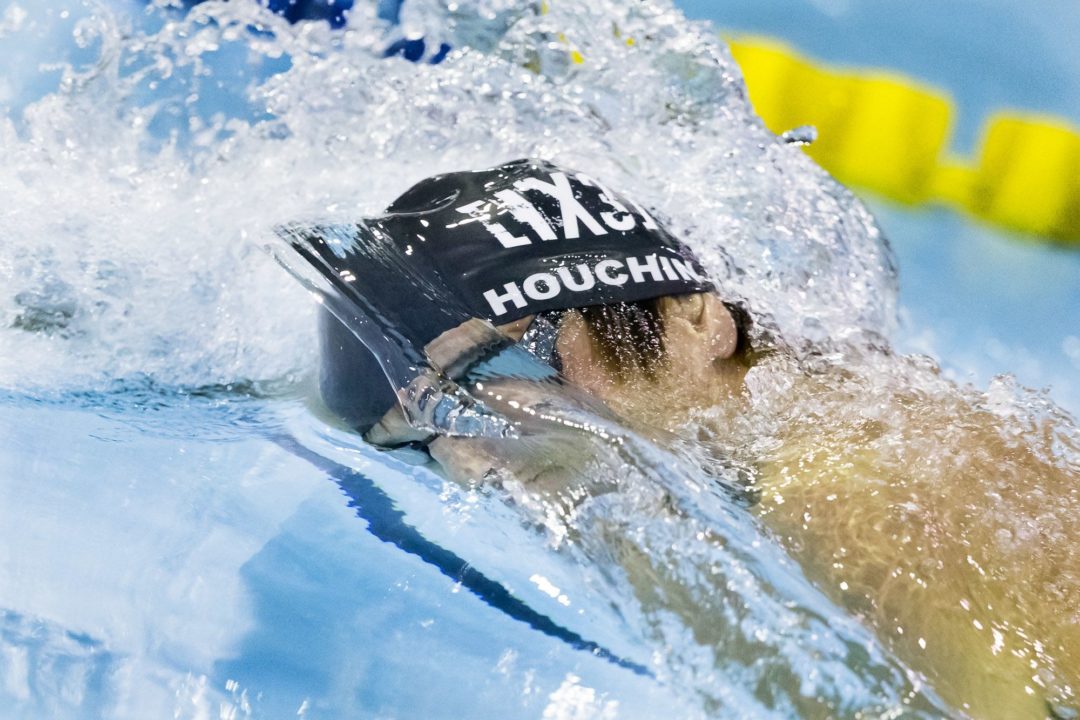Olivier Poirier-Leroy is a former national level swimmer. In feeding his passion for swimming, he has developed YourSwimBook, a powerful log book and goal setting guide made specifically for swimmers. Sign up for the YourSwimBook newsletter (free) and get weekly motivational tips by clicking here.
Ohhhh, hells yeah.
So you’ve decided to use a logbook to track your practices. You’ve recognized that it’s an easy way to squeeze more from the time you are spending at the pool. Best of all you will see improvement from monitoring without having to drop a bunch of money on a new suit or try some new wild training technique.
Here are a few ways to make the most of this simple yet extraordinarily powerful tool–
1. Don’t Just Write Out Your Practice, Record How You Did.
The name of the game in becoming a faster swimmer lies in progression. (Thanks, Captain Obvious.) But if you don’t know what your best results are, how do you know how fast you want to go when that set comes around again?
It’s not enough to just write the set and intervals out. You should be writing out how fast you were going. Were you averaging 30’s? Started out hitting 28’s and then faded to consecutive 32’s?
Having this stuff written out in your workout logbook is valuable to know so that you have a measuring stick to hold yourself up to and see yourself improving.
2. Write Down Your Practice ASAP.
We tend to think we have perfect recall. But with the sheer number of repeats, sets, and various drills, kicks, and so on that we perform in the course of a typical practice it can be easy to have the results get blurred in the aftermath.
Soon as you have a few moments to sit down and do so, write out your practice – and the intervals and times you performed – as accurately as possible. This will give you an honest record of what you have done, which will make comparing results much easier the next time a similar set appears on the chalkboard.
3. Don’t Forget the Other 22 Hours of the Day.
The work we do at the pool is obviously critical but it is not the only part of the overall foundation of what makes an athlete. Things such as diet, rest and stress levels often take a back seat to our focus on the pool, and sometimes get neglected as a result. Writing where you are at with these areas in your swimming log, and also being able to see the connections between periods where your diet/rest weren’t optimal with poor training, provides an opportunity to get a bird’s eye view of whether you are living the life of an athlete outside of the pool.
Areas to monitor—
Sleep. Did you crush a full night of rest? Or did you pull an all-nighter with a six-pack of Monster in order to finish a paper, giving you far less than what you need to recover adequately?
Water consumption. Did you have your water bottle on you all day and on deck, insuring that your hydration was good and that you were replacing lost fluids throughout practice?
Mood/Stress. Is everything outside of the pool in balance?
Ouchies. Are you plodding through some nagging shoulder pain? Still experiencing tenderness or soreness that is affecting your swimming?
4. Set Goals.
Like a ship without a rudder, swimmers who want success without planning for it are merely wishful thinkers, drifting along without true direction. Set yourself goals – for the season, for the month, and even session-specific.
Your logbook can act as a great hub for all of your goals, and also provide you with the feedback necessary to know if you are on the right path or not.
5. Share With Your Coach.
Your coach is vested in your success. Sharing your goals and results with your coach is an integral part of a successful and productive athlete-coach relationship.
Showing your coach some sets that you didn’t necessarily understand, or some areas where you struggled gives him or her to explain the purpose behind the assigned sets. Moreover, periodically sitting down with your coach for mini State-of-the-Swimmers will help you address areas where you kicking butt, while also gleaning light on things you can improve or work on.
6. Forget the Other Swimmers in Your Lane.
I have seen swimmers get obsessive about fellow athletes in their logbook. And not in the, “I have a crush on you” type of way. Your logbook is for you and your swimming, not as a barometer to measure yourself against other athletes. Controlling their performance is impossible. Your logbook should be first and foremost about improving yourself as an athlete.
7. Write Notes. Lotsa Notes.
Write out how you felt in the water, put asterisks beside sets you really liked, or even go kindergarten on your logbook and decorate it with blue stars, happy faces and unicorns. (Or you know, whatever.) The point is, the more feedback you give yourself, the more valuable your logbook becomes. It turns into a history of your performance, something which you will always be able to look back on with a warm sense of pride.
About YourSwimBook

 YourSwimBook is a log book and goal setting guide designed specifically for competitive swimmers. It includes a ten-month log book, a comprehensive goal setting section, monthly evaluations to be filled out with your coach, and more.
YourSwimBook is a log book and goal setting guide designed specifically for competitive swimmers. It includes a ten-month log book, a comprehensive goal setting section, monthly evaluations to be filled out with your coach, and more.
Learn 8 more reasons why this tool kicks butt.
Team and group discounts are available for clubs. Fill out a request for a complimentary estimate by clicking here.
Join the YourSwimBook weekly newsletter group and get motivational tips and more straight to your inbox. Sign up here.
